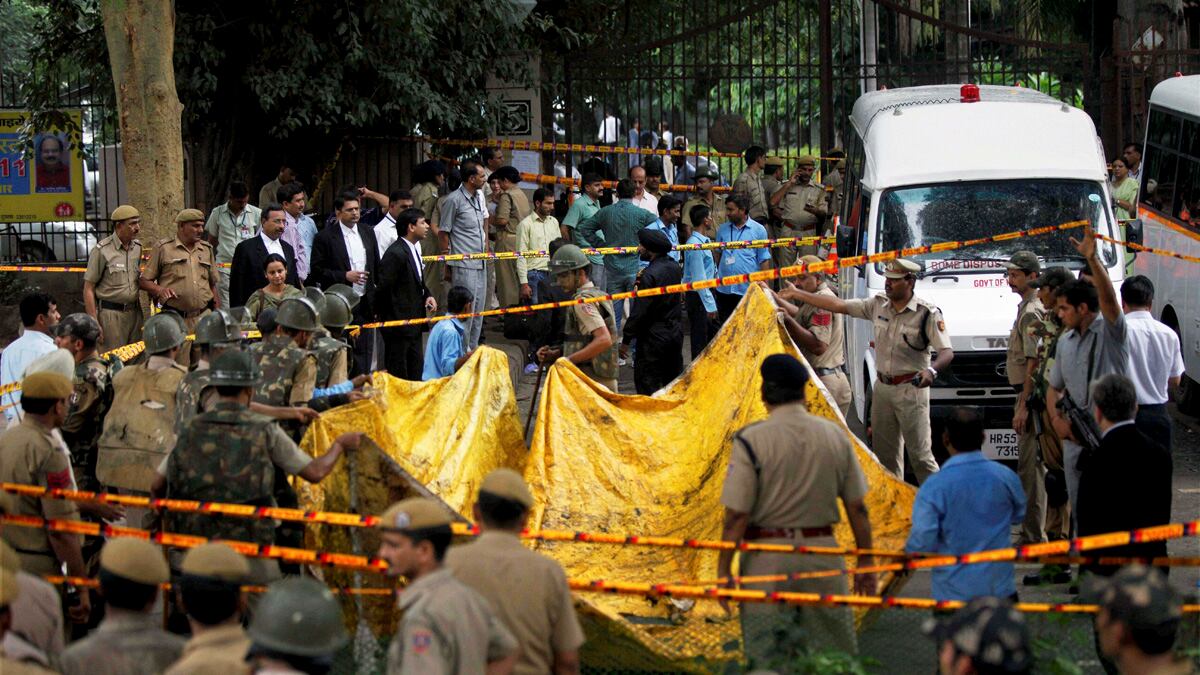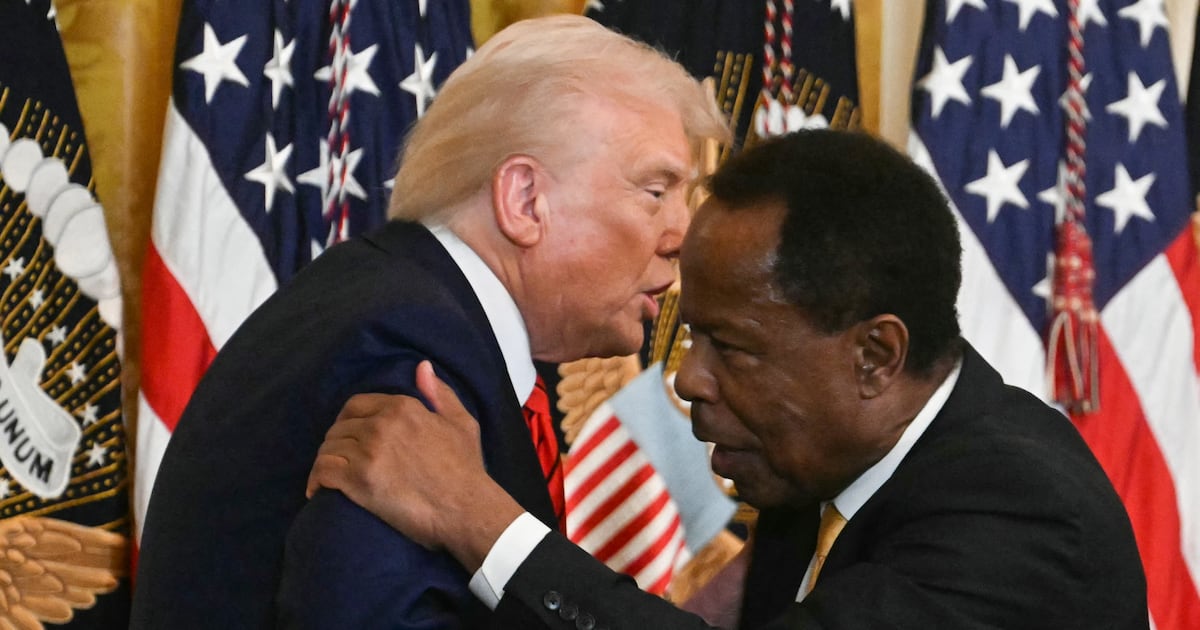It happened again here on Wednesday, just like it has happened so many times before in India, and likely will again. A suitcase filled with plastic explosives detonated in a crowded security line outside the High Court in New Delhi. A dozen people were killed and nearly 90 more injured. Police collected torn limbs from the blast site, and medics ferried mangled bodies to overcrowded hospitals. The blast was so strong that several injured victims are still fighting for their lives.
In a short statement to Parliament following the attack, Home Minister P. Chidambaram said that he and his fellow lawmakers were “determined to track down the perpetrators of this horrific crime and bring them to justice." Yet if the past is any indication, justice is unlikely to occur. In fact, perhaps more than any other recent terror attack, Wednesday’s event calls into question the government’s ability to protect its citizens from the small cadre of murderers who continue to plague the country, and will continue to do so unless India gets serious about combating terror.
Consider this: the explosion marked the 19th major terrorist attack in India’s capital over the past 15 years. In all but two cases, the perpetrators remain at large. And like many other attacks, this one should have been prevented. The blast occurred barely two kilometers from India’s Parliament, which was in session, and thus inside a high-security zone that houses various government and defense ministries. It followed a blast in May near the High Court, which caused no injuries but prompted many to suspect that the blast was a dress rehearsal for something more serious. And in July, after three bombs ripped through Mumbai, the nation’s financial capital, killing two dozen, India’s federal home ministry warned the Delhi police about the possibility of future attacks in their city. Unfortunately, the proper precautions were never taken. There were no closed-circuit television cameras operating in the area near the blast. And when metal detectors were used, which was rarely, the screenings were perfunctory.
Within hours of the carnage, Harkat-ul-Jehadi Islami (HUJI), a Pakistan-based terror organization, claimed responsibility. The shadowy group, which also has a presence in Bangladesh, warned that more attacks may soon come if the courts do not lift a death sentence on Afzal Guru, a Kashmiri who has been convicted of playing a role in the 2001 attack on India’s Parliament. The Delhi Police have arrested three suspects, but privately admit that they remain in the dark about exactly who carried out the attack.

Across the city, many expressed both anger and remorse in the hours after the bombing. Yet their mounting frustration was not directed solely at the terrorists. Indeed, the aftermath of the attack once again cast a spotlight on the vast levels of inequality in this sprawling nation. While anxious relatives were barred from seeing their injured loved ones, politicians from both parties were permitted to enter the hospitals. That set off spontaneous protests across Delhi as several hundred rallied outside medical facilities, inveighing against their leaders. “Politicians and ministers are … not really interested in fighting terror,” said Rajesh Singh, a taxi driver who helped a few injured at the blast site. “They are not as vulnerable as we common people … because they move about in heavy-security cordon and live in well-guarded houses.”
These tensions are unlikely to subside. For years the country has been divided about how to deal with the scourge of terrorism, and no consensus appears imminent—especially among government officials. Some within the security establishment feel that India needs to get tough with Pakistan; that the country should even strike at terrorist training camps across the border, with or without Pakistani permission, as in the case of the United States killing Osama bin Laden. The Indian foreign ministry on the other hand has long felt that greater cooperation with Pakistan is necessary to fight terror effectively .
Security experts can agree at least on one thing: India’s intelligence-gathering operations are weak, especially when it comes to counterterrorism. In a country of nearly 1.2 billion people, there are fewer than 6,000 federal intelligence officials. Many are ill-equipped and overworked and are forced to deal with problems like sectarian riots and various separatist movements.
On an official visit to Bangladesh on Wednesday, Indian Prime Minister Manmohan Singh tried to offer words of patience and comfort to his nation. “This is a long war,” he told reporters. “All people of India have to stand united.”
So long as the perpetrators of Wednesday’s attack—and those who came before it—remain at large, Singh’s words are likely to fall on deaf ears.






